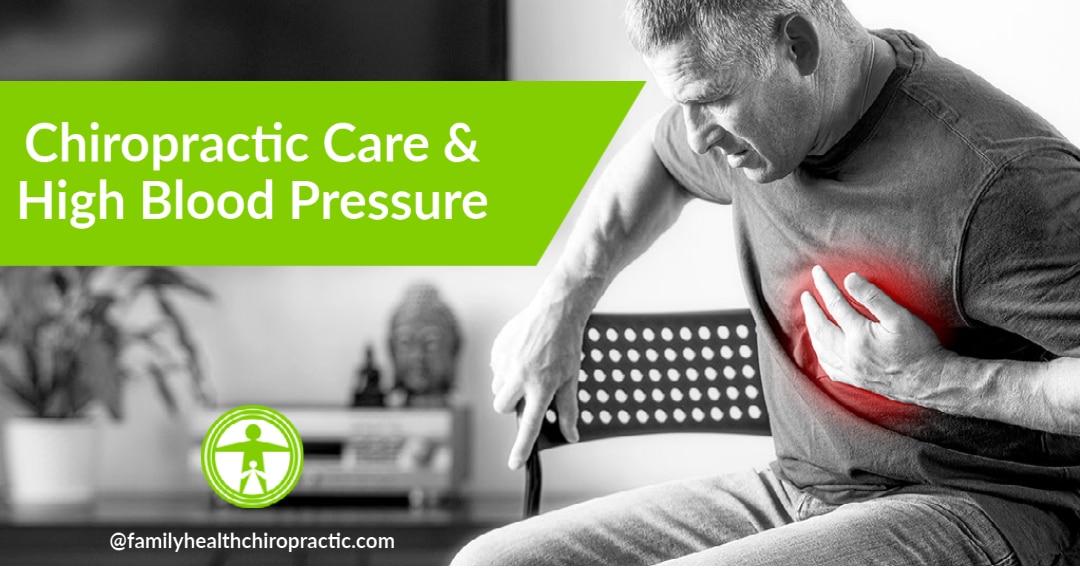Do you ever feel so busy or so stressed out that you just know if someone does something to irritate you anymore, you're going to lose your shit over it and say or do something you'll regret?
Modern life was hectic before the pandemic, but juggling work and family, endless emails, text messages and a constant barrage of bad news all mixed in with the pandemic has made it that much worse.
When we get stressed out, our blood pressure rises and we can develop hypertension because of it.
And when things get too much for us, we sometimes forget to pay enough attention to looking after ourselves and we may eat and drink too much and not do enough exercise. If this goes on for too long it can have an impact on our health. In particular, it can lead to high blood pressure. [1]
High blood pressure, or hypertension, is the most important risk factor for premature death, accounting for half of all deaths caused by cardiovascular disease and 13.5 percent of all deaths each year.
It affects 26 percent of the population worldwide, and one-third of the population in the U.S.
Nine in ten Americans are expected to develop high blood pressure by the age of sixty-five.
With this in mind, it’s no exaggeration to suggest that keeping your blood pressure under control is one of the most important things you can do to extend your lifespan.
For people with high blood pressure, usually the best thing they can do to help themselves is to make changes to their lifestyle, like optimizing nutrient intake and paying attention to foods they eat, increasing physical fitness, drinking less alcohol, and practicing stress reduction strategies. [2] And these lifestyle modifications often work as well as, or better than, taking blood pressure drugs. [3]
Chiropractic Care Helps with Blood Pressure
One other healthcare option that some people turn to when they have high blood pressure is chiropractic care. This may be because of a study that reported startling results that was published in the Journal of Human Hypertension and gained a lot of exposure. [4]
In this study, researchers did a randomized controlled trial with 50 patients with early stage high blood pressure. Half of them received specific chiropractic care that focused on the top of their neck for 8 weeks, and the other half received sham care, or pretend chiropractic care.
The researchers were interested in seeing whether the group that received real chiropractic care had a significant reduction in blood pressure compared to the control group.
After 8 weeks, the patients that received the real chiropractic care showed a significant drop in blood pressure compared to those that received
pretend chiropractic care. The average decrease in blood pressure for the real adjustment group, was an extraordinary 17 mmHg for systolic blood pressure and 10 mmHg for their diastolic blood pressure.
This improvement in blood pressure is similar to what happens when 2 different blood pressure drugs are given together!
What's important to remember is that a chiropractor isn't trying to treat high blood pressure. Instead, they’re trying to improve spinal function, with the aim of improving your brain’s ability to regulate what’s going on in your body.
And for some people, especially those individuals with major spine misalignments, this can in turn positively influence their blood pressure.
Another randomized controlled trial published on July 15th, 2021 in the journal Spine, found that a single session of chiropractic care improved cardiac autonomic control in patients with musculoskeletal pain. [5]
In this particular study, while no changes were reported in blood pressure, chiropractic adjustments alone were able to influence the sympathetic (fight/flight response) activity to the heart.
Once again, chiropractic adjustments are demonstrated to influence the human brain and nervous system in profound ways.
How Diet Can Help with Blood Pressure
As mentioned above, there are several reasons that lead to someone developing high blood pressure, and diet is certainly one of them.
Here’s what to pay attention to regarding diet:
- Sugar. Increased consumption of sugar, especially sugar-sweetened soft drinks like soda, is associated with high blood pressure, and reducing sugar intake has been shown to lower blood pressure. [6]
- Potassium. High dietary intake of potassium is associated with lower blood pressure. In fact, many researchers believe that the protective effects of potassium are one of the major reasons why hunter-gatherers like the Kalahari Bushmen and traditional pygmies of Sub-Saharan Africa have such a low incidence of high blood pressure. In Paleolithic diets, the average daily intake of potassium was approximately 10,500 mg/d. In comparison, the average American consumes about 2,800 mg/d. [7]
- Cold-water fish. In my Functional Medicine practice, I always suggest that patients consume at least 1 pound of fatty fish per week. There are numerous health benefits of EPA and DHA, the polyunsaturated fats found in cold-water fish. Studies have shown that DHA, in particular, is very effective at reducing blood pressure. You don’t need to take a fish oil supplement to get this benefit; eating cold-water fish three times a week is just as effective as taking a high-dose fish oil supplement, and the protein in the fish may also have a blood-pressure lowering effect. [8]
- Magnesium. A high dietary intake of magnesium has been shown to reduce blood pressure, though its effect is not as strong as what is observed with potassium. Nuts, seeds, spinach, beet greens, and chocolate are the highest food sources of magnesium on a Paleo diet. Magnesium’s effect on blood pressure is magnified when combined with increased potassium intake. In fact, increasing potassium and magnesium intake together while moderately reducing sodium intake can lower blood pressure as much as a single medication. [9]
What about salt?
We’ve been told for years that a high salt intake is one of the primary risk factors for high blood pressure and cardiovascular disease, but it’s time to shake up this old myth.
Though some studies do suggest that restricting salt can lower blood pressure, the evidence supporting a connection between salt intake and cardiovascular disease is weak at best.
How Lifestyle Factors Can Help with Blood Pressure
There are a number of lifestyle factors that can help with blood pressure problems.
Here's a few to consider:
- Weight loss. Excess body fat can raise blood pressure, and reducing it can lower blood pressure.
- Exercise. Endurance exercise, strength training, high-intensity interval training and simply moving around more during the day (outside of a distinct exercise period) have all been shown to significantly reduce blood pressure.
- Sleep. Both short sleep duration and poor sleep quality increase the risk that you’ll develop high blood pressure. Correcting sleep apnea has been shown to reduce blood pressure.
- Sunlight. Exposure to ultraviolet light (via sunshine or tanning beds) increases the production of a chemical in our bodies called nitric oxide. Nitric oxide is a powerful vasodilator; it helps our blood vessels to relax, which in turn lowers blood pressure.
- Meditation. Several studies have shown that meditation can be effective for lowering blood pressure, possibly via its relaxing effects on the nervous system.
- Deep breathing. Deep breathing is part of many traditional practices such as yoga, qi gong and certain forms of meditation. Even short periods of deep breathing have been shown to modestly lower blood pressure, and using deep-breathing techniques over weeks to months may lead to long-term reductions in blood pressure. Research suggests that three to four fifteen-minute sessions per week of deep breathing are sufficient to have this effect.
- Biofeedback. Biofeedback, the process of becoming aware of the body’s physiological functions, has been shown to effectively reduce blood pressure, with no side effects or risks.
Chiropractors are Uniquely Positioned to Help with High Blood Pressure
When it comes to reducing blood pressure, there are many steps you can take. This includes attention to your diet and lifestyle habits as well as weight loss and maintaining good levels of physical activity are critical factors in lowering blood pressure.
Getting enough sleep, not smoking and drinking alcohol in moderation are also important lifestyle modifications that can help relieve high blood pressure.
Chiropractic treatments is a viable option for people who would like a non-invasive treatment to lower their blood pressure levels.
The treatments focus on adjustments to the spine and other joints that may be affecting circulation, nerve pain or muscle tension – three factors that are vital in determining your blood pressure levels.
A chiropractor will also use various methods such as deep tissue massage, stretching and acupuncture to target muscle tension, poor lymph circulation and the effects of stress on your body.
The first step in successfully reducing your blood pressure is to take a look at what medications you are taking and find out how they can be adapted or changed into dietary changes and lifestyle habits such as losing weight, eating healthier foods, getting enough sleep every night, not smoking cigarettes or drinking alcohol in moderation.
If all of this sounds too complicated and overwhelming for you right now because it feels like there's nothing more frustrating than dealing with high blood pressure (which for many people means heart attacks and strokes), let us help!



